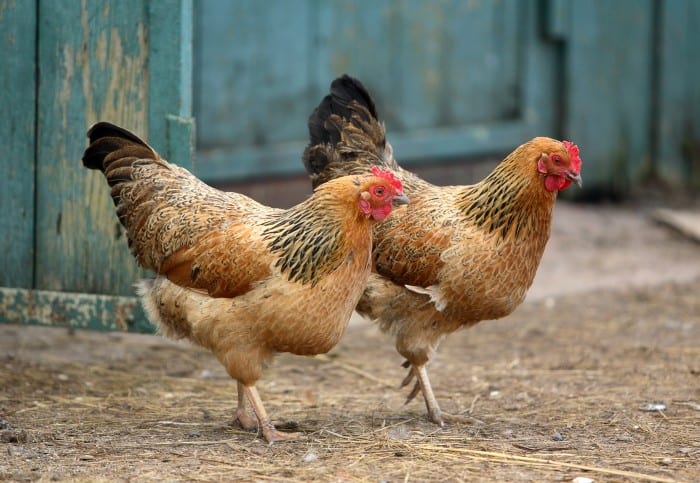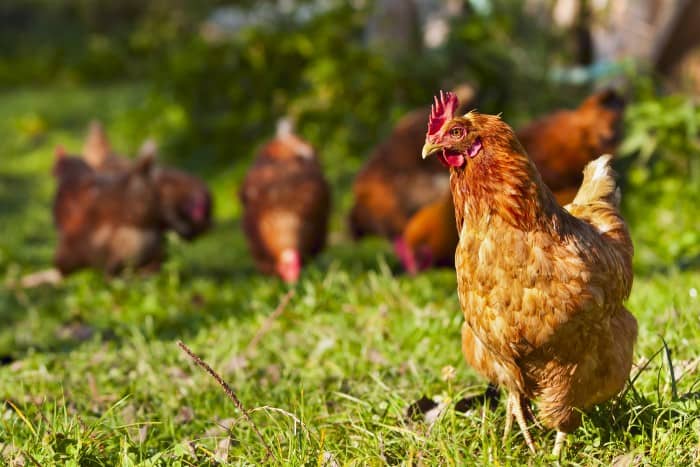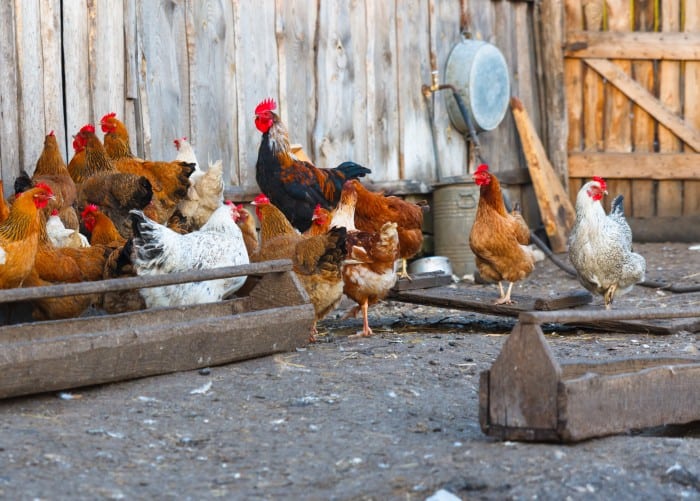Keeping backyard chickens has become a popular hobby with millions of people all over the world. Chickens make great pets. They are intelligent birds, always entertaining, and earn their keep by providing their owners with an endless supply of free-range eggs. Here is a quick guide to the main things you need to know about when keeping a flock of backyard chickens.
Selecting the Right Breeds
Some breeds are better than others are if you are new to rearing chickens.
- Orpingtons are a popular breed for beginners. Orpingtons are a large bird, good egg layers, and friendly. They enjoy human contact and if you spend plenty of time with your chickens, don’t be surprised if you end up with birds that are happy to sit on your knee. Orpingtons are also very hardy, which is useful in colder climates.
- Rhode Island Reds are another popular breed that is easy to care for. Rhode Island Reds are hardy, good egg layers, and docile. They lay beautiful brown eggs.
- Leghorns are very tolerant to heat and well suited to warmer climates. They don’t like the cold, however, and are prone to frostbite. They are good layers, with large, pale-colored eggs.
- Bantams are a smaller breed of chicken and great for kids. Bantams are easy to care for and good layers. They do tend to get broody, however, which causes them to sit on a clutch of eggs for days at a time.
Chicken Housing
Your chickens will need a purpose-built home where they can lay their eggs and be safe at night. Wooden chicken coops are the most common type of chicken housing. They come with a small ramp and internal nest boxes and perches. Many coops also include a wire mesh run to contain chickens and protect them from predators. If this is your plan, make sure the coop you buy is large enough for the number of birds you have.
Some manufacturers now supply plastic chicken coops. These offer a number of advantages, including ease of cleaning and zero maintenance. Plastic chicken coops can be hosed down and disinfected, which makes pest control much easier. Plastic doesn’t rot or succumb to predators.
Feeding Your Chickens
Chickens eat pretty much anything, but they should be given a steady supply of pellets to ensure they have the right balance of nutrients for good health and egg production. Chickens love corn, but you shouldn’t feed them too much corn, as it doesn’t contain the right nutrients. It is, however, a nice treat for them.
Your chickens will also appreciate any kitchen scraps you give them. They love vegetable peelings and meat, but don’t feed them chicken scraps, as this is how deadly diseases spread. Be careful when feeding chickens scraps. Chickens soon become accustomed to getting treats and they will mob you if you feed them at certain times of the day. It’s not much fun being pecked by a greedy chicken, so protect your legs with rubber boots and keep a close eye on younger children.
Pest Control
If you grow your own veggies, your chickens will take great delight in finding slugs, bugs, and other pests. They love nothing better than spending the day scratching up the soil and rooting around in the compost heap. Don’t allow your chickens to have the run of your vegetable patch unless you want it turning over. Chickens are excellent excavators. They love to dig up seedlings and established plants. However, if you need a patch of soil clearing, chickens can do the job in record time. Just let them loose and by the end of the day, all pests and weeds will be long gone.
Chickens are great for pest control, but they also attract pests. As any backyard chicken keeper knows, rats and mites are a big problem. Rats are quick to show up once chickens are in residence. Rats eat the grain chickens leave behind and will snatch freshly laid eggs if given half a chance. You may also have a problem with snakes stealing eggs if you live in a rural area, so watch out for snakes in the chicken coop. If you spot the telltale signs of rats or any other pest in your chicken coop or surrounding area, call Go-Forth Pest Control of Salisbury NC as soon as possible. Once a rat colony takes hold, it is hard to eradicate.
Mites can be another tricky problem for backyard chickens. Mites thrive in warm weather and these bloodsucking parasites will make your hens very sick, very quickly. Mites can be treated with various lice powders, but diatomaceous earth is a useful eco-friendly solution. Diatomaceous earth is available from numerous places. It is a natural material made from ground up microscopic diatoms. It works by damaging the exoskeleton of lice and other small insects, so they eventually dehydrate and die.
Diatomaceous earth is harmless to human and chickens. Sprinkle diatomaceous earth inside the chicken coop and add it to your chicken’s food. It will kill pests inside and out. For best results, use it weekly, especially in warmer weather when pests thrive.
Protecting Chickens from Predators
Backyard chickens are vulnerable to predators. Dogs are the most common predators, and not necessarily your own dog. Some dogs ignore chickens, but others get very excited and chase them. Not all dogs mean to kill chickens, but a game can soon get out of hand. Don’t let your dog loose in amongst the chickens unless you are certain it is safe, and if you are concerned about a neighbor’s dog, ask them to keep the animal securely on their own property.
The other pests you need to be wary of are foxes, coyotes, possums, raccoons, and hawks. Foxes will kill everything in sight once they succumb to a blood lust. Foxes also thrill kill. Coyotes are not as agile as foxes, but they can dig under a coop. Raccoons can open doors and latches. They like to steal eggs, but kill birds as well. Hawks and other birds of prey have a high kill ratio, as a chicken doesn’t see them coming. They are a problem for free-range chickens left to roam at leisure. Skunks steal eggs, but will kill birds too, typically ripping their heads off. Bears can sometimes be a problem, although it very much depends on where you live.
The best way to protect your birds is to provide a predator-proof enclosure. Coops need to be secure with a raised floor and impermeable structure made from solid timber, metal or plastic. Wire mesh runs must be well maintained and have a mesh floor to prevent foxes and other predators digging their way under.
Chickens and Eggs
Free-range eggs are a great source of protein, and unlike shop-bought eggs, 100% tastier. During the laying season, chickens lay eggs once a day. Older birds lay eggs less frequently and eventually stop altogether. Birds that have had a bad start in life – e.g. factory hens – are also less reliable. A healthy chicken is a reliable source of eggs, so if your chickens stop laying for any reason, start asking yourself why. If they have had a nasty shock, (perhaps a predator tried to attack the chicken coop) or they look a bit off-color, this can affect egg production. It is also common for chickens to stop laying over winter, as days are shorter.
Backyard chickens are a reliable source of eggs, so it won’t be long before you end up with a glut of fresh eggs. You could give them away to friends and relatives or start doing a lot of baking, but it is worth selling them locally if there is a market. Any money you make from selling your eggs can pay for the cost of keeping your feathered friends. Buy egg boxes online from sites like eBay. Have a system in place so you know how old your eggs are. That way you won’t inadvertently sell stale eggs to anyone.
Bylaws
Local zoning regulations and bylaws dictate whether you are allowed to rear backyard chickens. Check your local laws before you buy any chickens. If you live in a rural area, it should be OK, but many zones don’t allow roosters because not everyone appreciates being woken up at first light by a noisy rooster. If you live in an urban or semi-urban area, it’s likely that chickens are banned. This is a real shame, but don’t go breaking the law. If in doubt, speak to your local planning office, and if your neighbors are protesting, speak to them to see if you can deal with their concerns. In most cases, ignorance is the problem, as people assume chickens are noisy and attract rats. In reality, hens are not noisy and pests are easily dealt with. If it helps, offer your neighbors a steady supply of free- range eggs.
Good animal husbandry techniques should prevent most of the most common issues affecting backyard chicken flocks. Keep your birds safe and secure, feed them the right food and provide fresh water, and you are guaranteed a steady supply of tasty free-range eggs.





